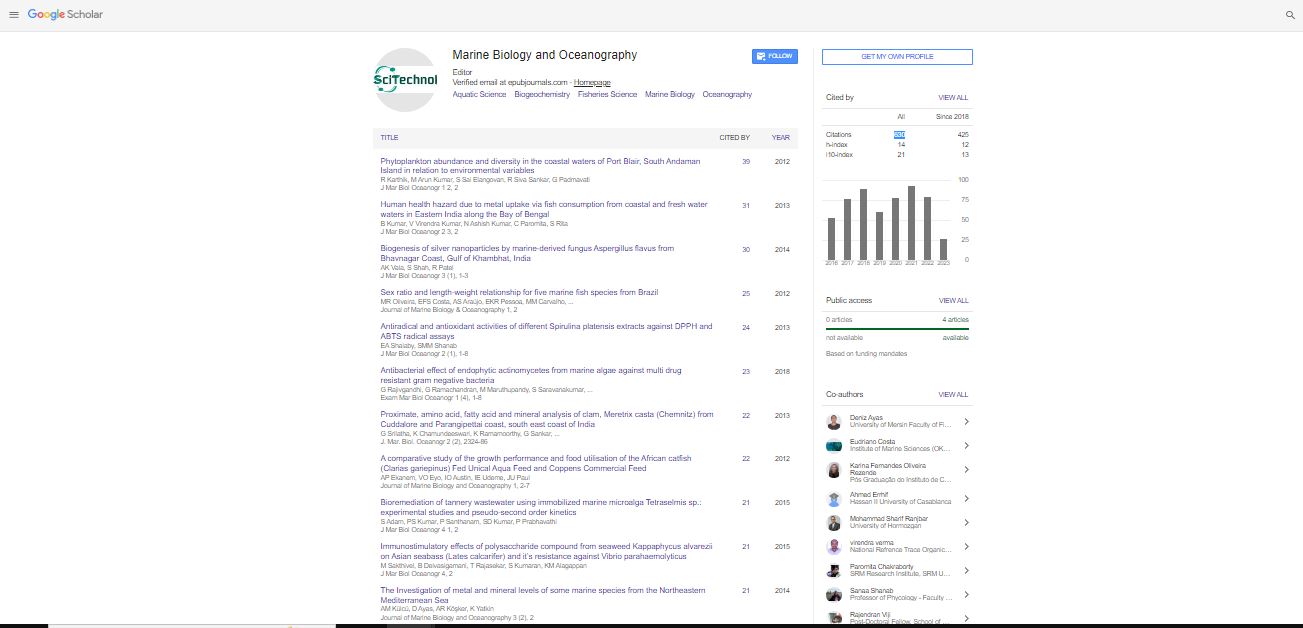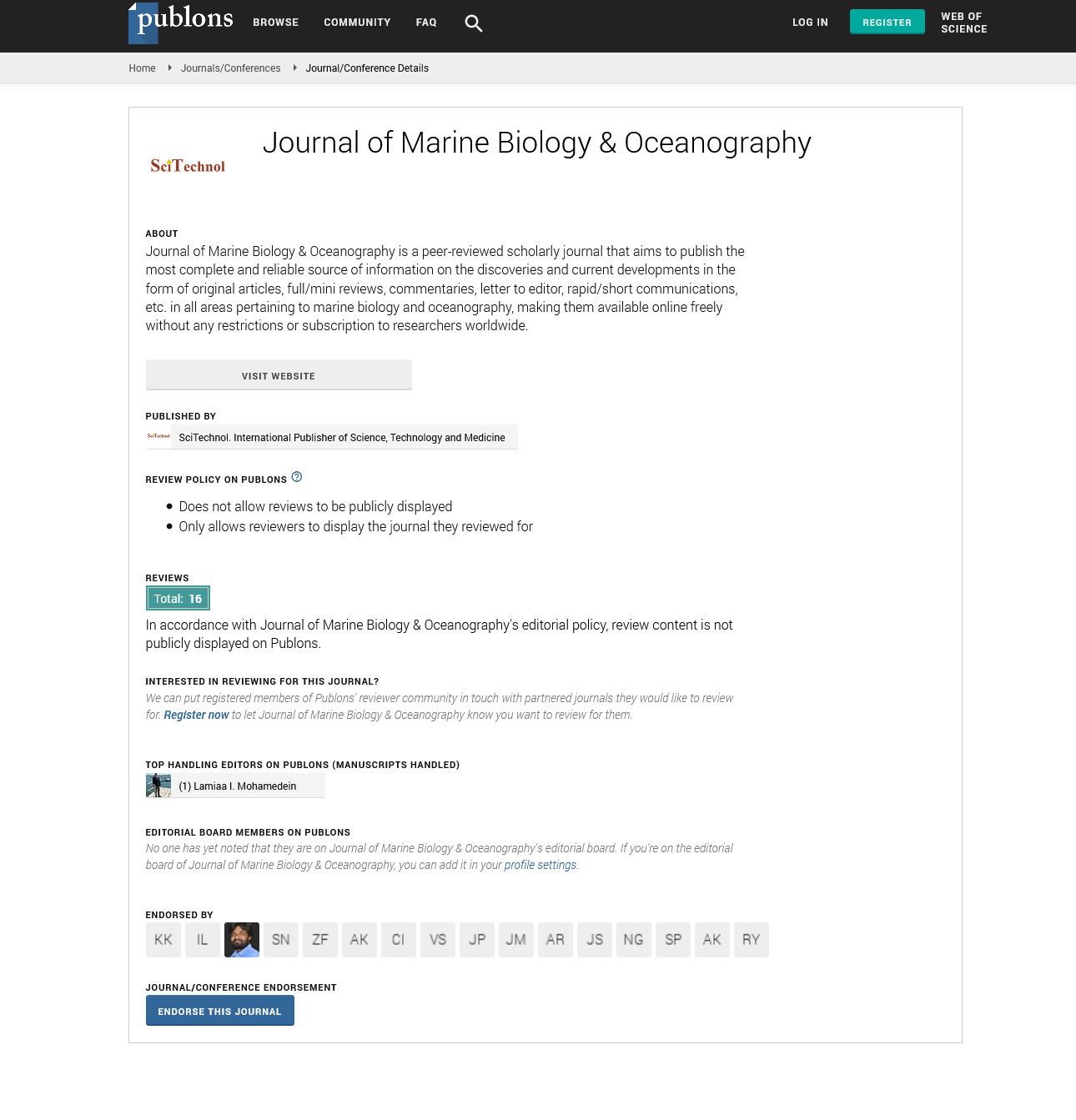Effects of Ulva rigida as microalgae diet replacement on broodstock conditioning, gonadal maturation and spawning success of the Pacific oysters (Crassostrea gigas)
Rodrigo O A Ozorio, Ana Rato, Lia Valido , Sandra Joaquim, Jorge Machado, Ana M Matias, Jose F M Goncalves , Paulo Vaz-Pires and Domitília Matias
CIIMAR, University of Porto, Portugal
IPMA, Portugal
ICBAS, University of Porto, Portugal
: J Mar Biol Oceanogr
Abstract
The current study evaluated the microalgae replacement by dry seaweed (Ulva rigida) in the reproductive success and biochemical composition of pacific oyster (Crassostrea gigas) during broodstock conditioning. Seven hundred and twenty oysters were divided into four dietary groups (3tanks/diet; 60 oysters/tank). Each group was fed for 11 weeks with one of the following diets: 100% live microalgae blend (Alg); 75% Alg + 25% seaweed (SW); 50% Alg + 50% SW or 100% SW. The Alg was composed of 33% Isochrysis galbana clone T-ISO and 66% diatoms (75% Skeletonema costatum + 25% Chaetoceros calcitrans). Gonadal maturation was reflected in the physiological condition of the individuals. All treatments, except 100% SW, showed an increase in condition index and were fully matured at the end of the trial, with the best physiological condition observed in two groups: 75% Alg + 25% SW and 100% Alg. Conversely, oysters fed 100% SW showed a decrease in the reproductive condition and a delay in gonadal development. The results of the respirometry showed an inhibition of oxygen consumption in oysters fed 100% SW, which is in line with the condition index and gonadal maturation. Protein and total lipids content increased during the conditioning, whereas glycogen decreased. Oysters fed 75% Alg + 25% SW had higher protein and total lipids content and lower glycogen content (main energy reserve of gametogenesis) than the other treatments. In addition, this group showed the highest percentage of viable (free-living) veliger larvae after induction of spawning, even higher than the 100% Alg group. The current study demonstrated that it is possible to replace 25% of microalgae with U. rigida in the broodstock conditioning of the pacific oysters, minimizing the operative cost in bivalve hatcheries.
Biography
Rodrigo O A Ozorio is a researcher at Centre of Marine and Environmental Research, Portugal. He has more than 20 years of experience in aquaculture research, special emphasis on the fish nutrition. He holds MSc and PhD degrees from Wageningen University and Research Centre, The Netherlands. Rodrigo has expertise on nutritional dynamics of fish and the economic potential of new aquaculture species based on a set of husbandry and physiological criteria. He participated in over 15 national and international projects (overall budget of 2.0 million euros), including four projects as scientific leader dealing with new aquaculture systems and sustainable alternative for intensive marine aquaculture. He supervised 8 PhD theses and 15 MSc theses and he authored over 56 scientific publications. rodrigo.ozorio@ciimar.up.pt
 Spanish
Spanish  Chinese
Chinese  Russian
Russian  German
German  French
French  Japanese
Japanese  Portuguese
Portuguese  Hindi
Hindi 
